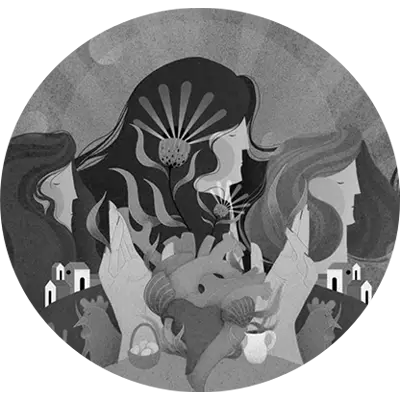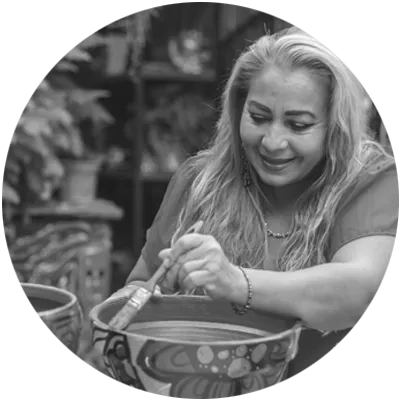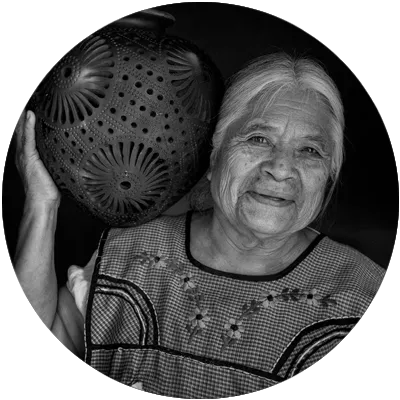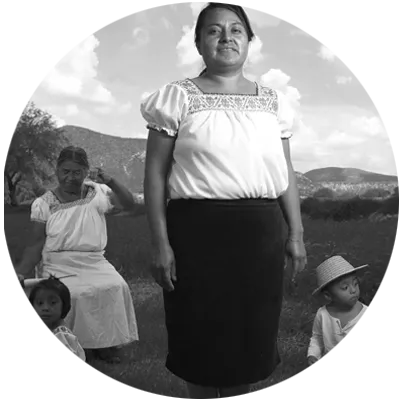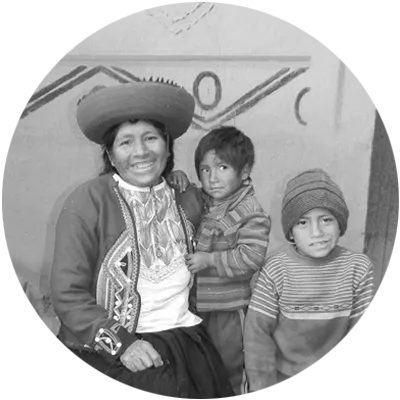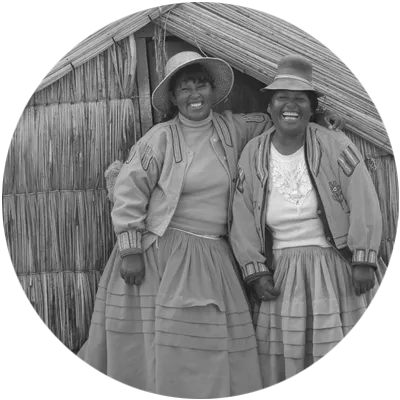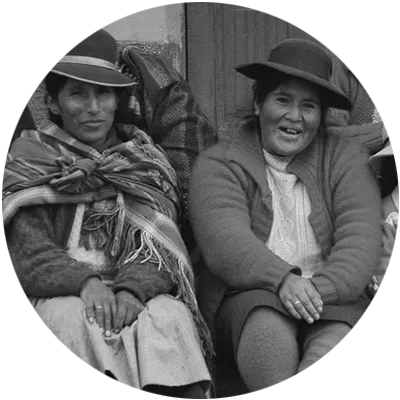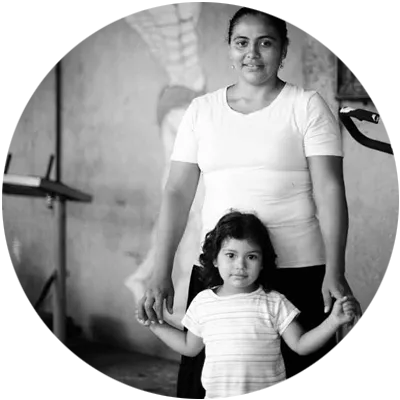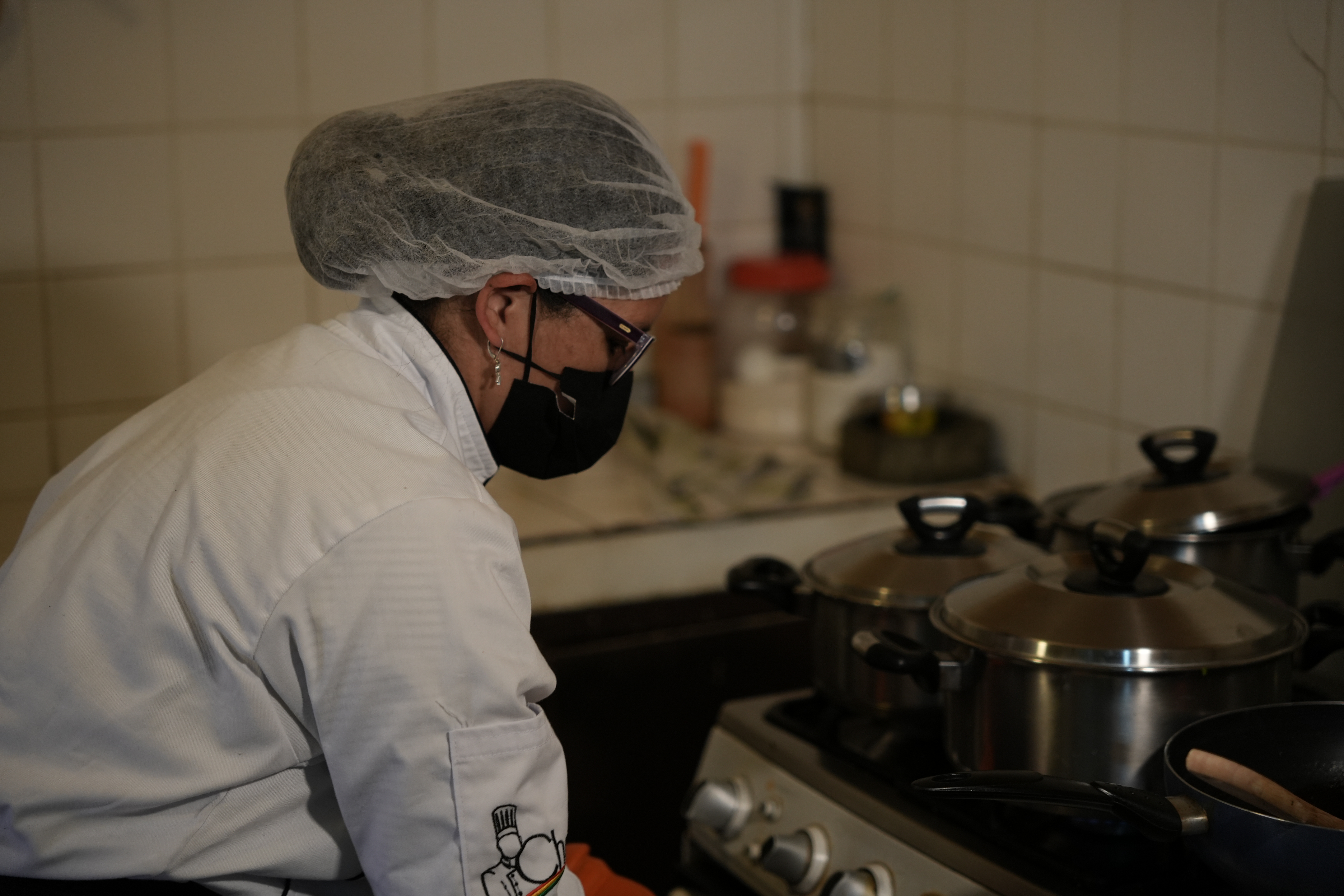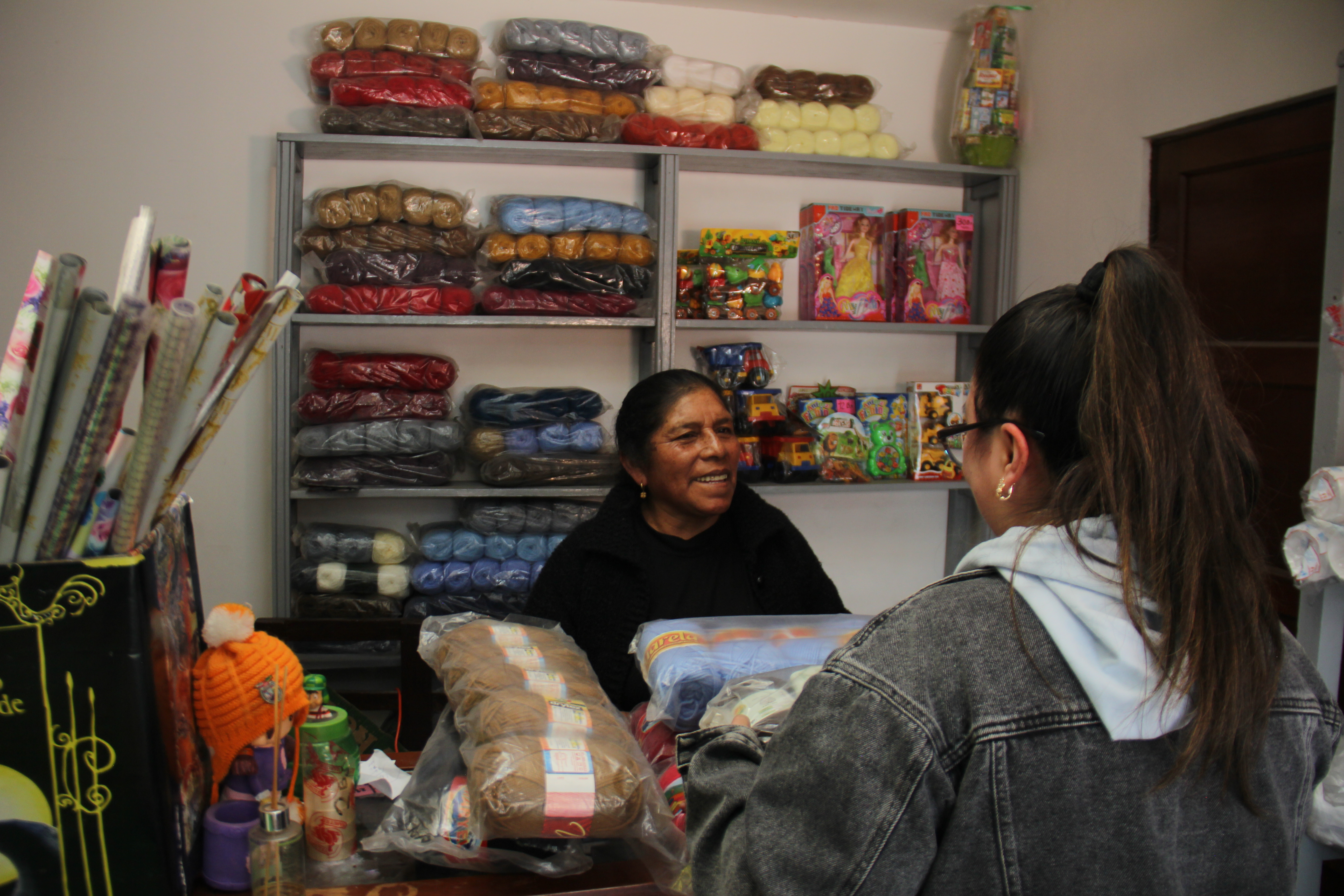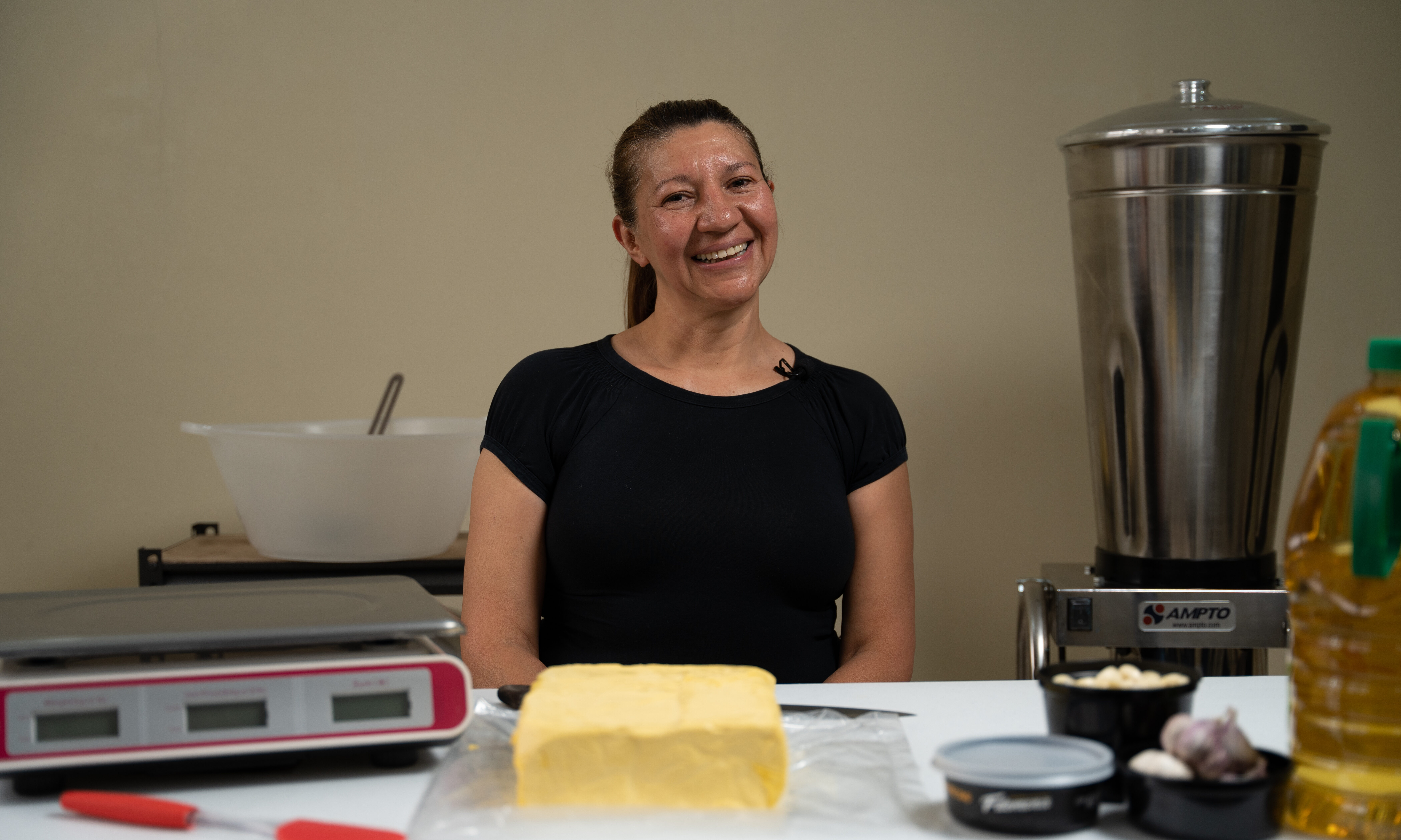By | Opportunities without borders – USAID
Migration is a global phenomenon that has shaped societies and economies throughout history. Currently, the migratory flow from Venezuela to Colombia has stood out for its magnitude and transformative impact, especially in terms of the increasing feminization of displacement. According to official figures from Migración Colombia (Colombia Migration), as of August 2023, the number of migrants from Venezuela in Colombian territory was 2,875,743, of which 52% are women. Likewise, female migrants registered an unemployment rate of 29.2% compared to 14.9% for male migrants (Ministry of Labor, 2023).
This article will delve into the crucial role of Venezuelan migrant women as entrepreneurs and change agents in Colombia, examining their challenges, opportunities, and the work of USAID’s Opportunities Without Borders (Oportunidades Sin Fronteras, OSF) project in developing their capacities and promoting their economic autonomy.
Challenges faced by migrant women entrepreneurs in Colombia
Women migrant entrepreneurs face a number of significant challenges and obstacles on their way to establishing businesses in Colombia. From cultural barriers, difficulties in accessing public services, separation from family, to lack of access to funding and resources. According to the Global Entrepreneurship Monitor (GEM, 2022) report, Latin America is considered the region with the highest rate of early-stage entrepreneurial activity by women. Their main motivation has to do with generating income through businesses that allow them greater economic autonomy and balance with their personal and family life.
GEM Colombia (2023) mentions that in the last four years this behavior in the country continues to be disparate, maintaining a difference of nearly four percentage points. The same occurs in the case of established business activity, where although there are changes in behavior, the percentages between the possibility of consolidation and sustainability of businesses by women is below that of men by between 1 and 3 percentage points, indicating that the gender gap in the consolidation of businesses remains.
The sustainability of businesses led by women (including migrant women) is lower than that of men, especially in ventures that are born out of a market opportunity. This is due, among other reasons, to limited STEM (science, technology, engineering and mathematics) knowledge and skills, the need for gender-sensitive skills development, entrepreneurial mindset and culture, and access to networking networks. Also to the low access to financing or the possibility of reaching investment or capital raising phases, where according to IDB Invest, approximately 73% of small and medium-sized enterprises led by women in Latin America do not have access to financing.
In addition, the characterization of businesses led by Venezuelan migrants, Colombian returnees and communities in Colombia conducted by the Opportunities Without Borders Project of USAID and iNNpulsa Colombia, which involved surveys of a total of 10,759 entrepreneurs, provided accurate and detailed information on the characteristics of the businesses led by the population, as well as their migratory situation and the conditions in which they carry out their businesses.
Analysis of the data obtained revealed the persistence of socioeconomic vulnerability among the migrant women entrepreneurs surveyed. The 77% percent of enterprises that participated in the survey are led by women, and of these, 56% are heads of household. This figure highlights the important contribution of migrant women as an engine of entrepreneurship and breadwinners, facing additional challenges in their role as business leaders and family caregivers. One of the significant gaps found is related to the generation of sales, understanding that the enterprises led by migrant men recorded annual sales 30% higher than the sales reported by women, and in terms of annual profits, men manage to achieve three percentage points more than the enterprises led by migrant women.
In this regard, it is necessary to address gender inequalities among migrant and Colombian returnee entrepreneurs and provide equal opportunities for women to access resources and financing, which is one of the main barriers. Therefore, it is essential to promote the recognition of gender biases within the actors of the credit/financial system and to promote mechanisms that achieve greater inclusion for women.
In the labor field, Venezuelan migrant women face additional barriers compared to the Colombian population, as they face less skilled and lower paid jobs, in addition to the overload of unpaid care work, due to their limited support network. Regarding care issues, it is erroneously believed that women are less productive because of their role as mothers and the time they dedicate to their children, which limits their access to better paid jobs, increases their economic dependence, and maintains gender gaps and gender-based violence (DNP, USAID; 2022).
The Opportunities Without Borders Project’s commitment
Although Colombia has taken positive steps to welcome migrants and formalize their status, significant challenges remain to advance their socioeconomic integration, and even more so if analyzed with a gender and systemic lens. Therefore, in 2022 USAID launched the Opportunities Without Borders Project, within the framework of its “Venezuela Response and Integration” portfolio, in order to improve the social and economic inclusion of the migrant and Colombian population, and thus contribute to the generation of trust, social cohesion, the positioning of migration as a positive factor / opportunity, sustainable development and economic competitiveness of the country.
Opportunities Without Borders (OSF) works in Colombia’s main cities and their metropolitan areas (Barranquilla, Bogotá, Cali, Cúcuta, Medellín, Riohacha, Bucaramanga, Cartagena, and Santa Marta), promoting formal employment and entrepreneurial opportunities for migrants and their host communities. To strengthen entrepreneurship, OSF has a strategy that provides comprehensive support to migrant women entrepreneurs, offering training, technical assistance, product sophistication, connection to the market, and access to financial capital, so they may generate greater autonomy in the development of their capabilities.
Within this framework, OSF implements actions aimed at establishing incubation, acceleration and investment processes, mentoring and coaching networks for the ventures that are part of its intervention routes.
Case study: Ana Karina and her venture in Riohacha
Ana Karina, a Venezuelan migrant and business leader in Riohacha, exemplifies the transformative potential of migrant women in Colombia. She divides her time between caring for her children, social actions on behalf of vulnerable people, and her business. She is the legal representative of Fundación Venezuela en Acción Colombia (Venezuela in Action Foundation Colombia) and owner of Dulces de Anita (Anita’s Sweets). Since her arrival in Colombia in 2019, despite facing adverse situations, she has shown remarkable resilience and determination to thrive in her new environment. Ana Karina, a resilient and empowered woman with an unwavering social sense, has been able to change her life story and that of her family. She began to write her own story in Riohacha (La Guajira), when she decided to recover her aunts’ recipes to make the cakes she sold at the corner of her house and contribute economically to her household. At the same time, she sought support for her compatriots living in street conditions. Some time later, with the support of several local and international entities with a presence in Riohacha, she managed to regulate the residence of her entire family in Colombia, and created a foundation together with other colleagues. To date, they have supported more than 300 people. Thus, she became a leader in Guajira and also formalized her baking business, which ensures her income to support her family and household. With the support of the OSF project, she has received training in costing and sales pricing, financial education, gender and social inclusion approach, GESI, digital marketing, and brand positioning. Ana Karina has strengthened her business and leadership skills, standing out as an inspiring model of female empowerment and self-improvement. Her business, Dulces de Anita (Anita’s Sweets), not only provides her with income to support her family, but also contributes to the welfare of her community through social actions and support for vulnerable people.
OSF results and recommendations
As of December 2023, in one year of operation, the project has reported the following results in the entrepreneurship and employability strategy:
- 566 Venezuelan migrant women have received capitalization for their businesses, mainly located in Cartagena (22.4%), Bucaramanga (17.3%), Cali (15%), and Barranquilla (11%).
- 514 migrant women entrepreneurs have children and 353 are heads of household.
- The main economic sectors of women-led enterprises are food and beverages (38%), health and beauty (16.6%), and commerce (13.6%).
- 2,870 Venezuelan migrant women have accessed financial services for savings, credit, and transfers in the OSF project.
- 8 partners, integrating actors in the territory, have supported the strengthening of women’s entrepreneurship: Cámara de Comercio de Cartagena (Cartagena Chamber of Commerce), Universidad del Norte (North University), Congregación Mariana (Mariana Congregation), Corporación de Desarrollo Productivo (Productive Development Corporation), Interactuar (Interact), Corporación Organización Minuto de Dios (Minute of God Organization Corporation), and Fundemicromag.
- 1,142 Venezuelan migrant women are formally employed.
- 659 migrant women with labor ties are heads of household and 453 have caregiving responsibilities at home.
Takeaways
Despite the challenges, many Venezuelan migrant women demonstrate a remarkable ability to innovate and generate resources in diverse business environments. One of the distinctive characteristics of migrant women entrepreneurs is their ability to integrate elements of their culture of origin into their businesses. In doing so, they not only preserve their cultural identity, but also enrich local business offerings, and promote cultural diversity. This ability to merge the old with the new, the familiar with the unfamiliar, is a driving force for innovation and economic growth in host communities.
The transformative impact of migrant women entrepreneurs is undeniable. These women not only generate employment, they drive innovation, and promote economic growth in their host communities. In addition to their economic impact, they also play a crucial role in promoting social change and empowering other women. They act as role models and become mentors for other migrant, returnee, or Colombian women aspiring to become entrepreneurs, challenging entrenched gender stereotypes and demonstrating the unlimited potential of women in entrepreneurship. However, in order for these women to reach their full potential, it is critical that they have the support and resources they need to grow their businesses and contribute to the sustainable development of their communities. It is also essential to design career plans that promote equal opportunities for training and professional development between men and women, as well as to generate adequate working conditions that guarantee the well-being and safety of women in the workplace.
The role of government entities and the coordination with organizations, institutions and economic sectors to promote programs that strengthen the growth, economic autonomy and sustainability of women’s businesses is also fundamental. The government and entities play a crucial role in creating a favorable environment for strengthening gender-based entrepreneurship among migrant women in Colombia. It is essential to promote programs that strengthen the growth, economic autonomy, and sustainability of women’s businesses, thus contributing to the economic and social empowerment of all women.
USAID’s Opportunities Without Borders (OSF) Project
VRI/Venezuela Response and Integration
For more information: oportunidades@colombiavri.org


